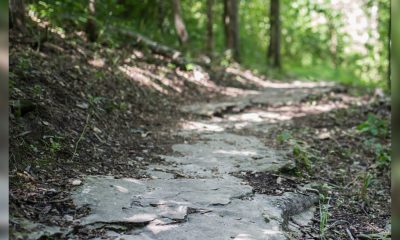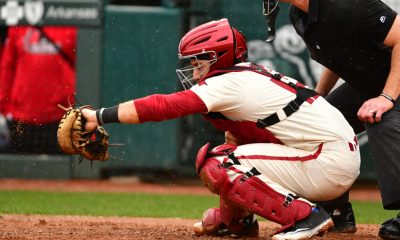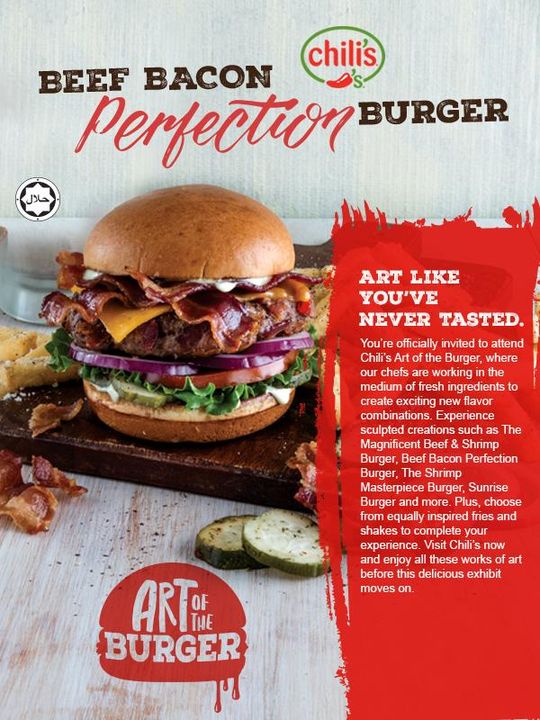U. S. News
Private groups barred from suing under Voting Rights Act
In a decision with significant implications for voting rights, the 8th U.S. Circuit Court of Appeals ruled that private individuals and groups, such as the NAACP, do not have the authority to sue under Section 2 of the Voting Rights Act. This ruling, contradicting decades of precedent, could potentially weaken protections offered by the landmark 1965 law.
The Court’s Controversial Decision
The 2-1 decision, led by Judges David R. Stras and Raymond W. Gruender, both appointees of former Presidents Donald Trump and George W. Bush respectively, states that only the attorney general can enforce Section 2. This section mandates that political maps include districts where minority populations can elect their preferred candidates. The court’s majority argued that unlike other federal laws, such as the 1964 Civil Rights Act, the Voting Rights Act lacks explicit provisions allowing private groups to sue.
Chief Judge Lavenski R. Smith, another Bush appointee, dissented, highlighting that federal courts and the Supreme Court have historically entertained cases brought by private plaintiffs under Section 2. He emphasized that such foundational rights should not solely depend on the government for enforcement.
Implications and Reactions
The ruling affirmed the dismissal of a lawsuit by the Arkansas State Conference NAACP and the Arkansas Public Policy Panel, challenging new Arkansas state House districts as diluting Black voters’ influence. Despite U.S. District Judge Lee Rudofsky acknowledging strong merits in the case, he felt compelled to dismiss it, given the ruling’s constraints.
Sophia Lin Lakin, director of the ACLU’s Voting Rights Project, called the decision a “travesty for democracy.” The ACLU, representing the two Arkansas groups, is exploring options, possibly including an appeal. Barry Jefferson of the Arkansas State Conference NAACP expressed dismay, seeing the ruling as a blow to civil rights and electoral integrity.
Contradictory Court Opinions
The ruling applies only to federal courts in the 8th Circuit, including states like Arkansas, Iowa, and Missouri. However, it starkly contrasts with recent rulings from other circuits, including the conservative-dominated 5th U.S. Circuit Court of Appeals in New Orleans, which upheld the right of private litigants to bring lawsuits under Section 2.
The contradiction is further highlighted by a 2021 opinion from Supreme Court Justice Neil Gorsuch, joined by Justice Clarence Thomas, suggesting the need to reevaluate who may sue under Section 2. Yet, the Supreme Court, in a recent Alabama case, ruled in favor of Black voters challenging congressional districts, implying the validity of private lawsuits under the Voting Rights Act.
The Future of Voting Rights and Legal Challenges
The ruling raises concerns about the future enforcement of Section 2 of the Voting Rights Act. Historically, private plaintiffs have played a crucial role in challenging racial gerrymandering and advocating for Black voters’ political representation, especially in Southern states with a history of racism. The Justice Department, while supportive of the right of private parties to enforce the Voting Rights Act, has limited resources to pursue such cases extensively.
Congressional action seems unlikely, given the partisan divide. Republicans have recently blocked efforts to restore protections in the Voting Rights Act weakened by the Supreme Court’s 2013 Shelby v. Holder decision, which eliminated the preclearance mechanism.
The Congressional Black Caucus has urged for an appeal to the Supreme Court, hoping for a reaffirmation of the citizens’ private right of action under Section 2. This ruling, if not challenged, could drastically reduce the number of lawsuits filed to protect minority voting rights and potentially make such challenges dependent on the political leanings of the attorney general’s office.
In conclusion, this ruling by the 8th Circuit Court presents a pivotal moment in the ongoing battle for voting rights in the United States. It not only challenges established legal precedents but also raises crucial questions about the future of civil rights litigation and the role of private citizens and groups in safeguarding democratic processes.
-

 Covid-191 year ago
Covid-191 year agoIngesting an excessive amount of vitamin D may result in serious health consequences
-

 Arkansas2 years ago
Arkansas2 years agoHuman remains discovered near a popular Arkansas hiking trail believed to be person missing since 2021
-

 Arkansas1 year ago
Arkansas1 year agoDriver in fatal single-vehicle accident in White County identified by authorities
-

 Local News1 year ago
Local News1 year agoA Sylvan Hills High School student’s painting receives considerable acclaim
-

 Arkansas3 years ago
Arkansas3 years agoArkansas Trying to Close Out Regular Season With Series Win Over Florida
-

 Arkansas3 years ago
Arkansas3 years agoMickelson changes his mind, accepts exemption to US Open
-

 Arkansas2 years ago
Arkansas2 years agoDue to the COVID Pandemic, Arkansas’ math and reading test scores have decreased
-

 Covid-192 years ago
Covid-192 years agoHealth and Wellness Clinic will be held on November 3 at UA Little Rock





Leave a Reply